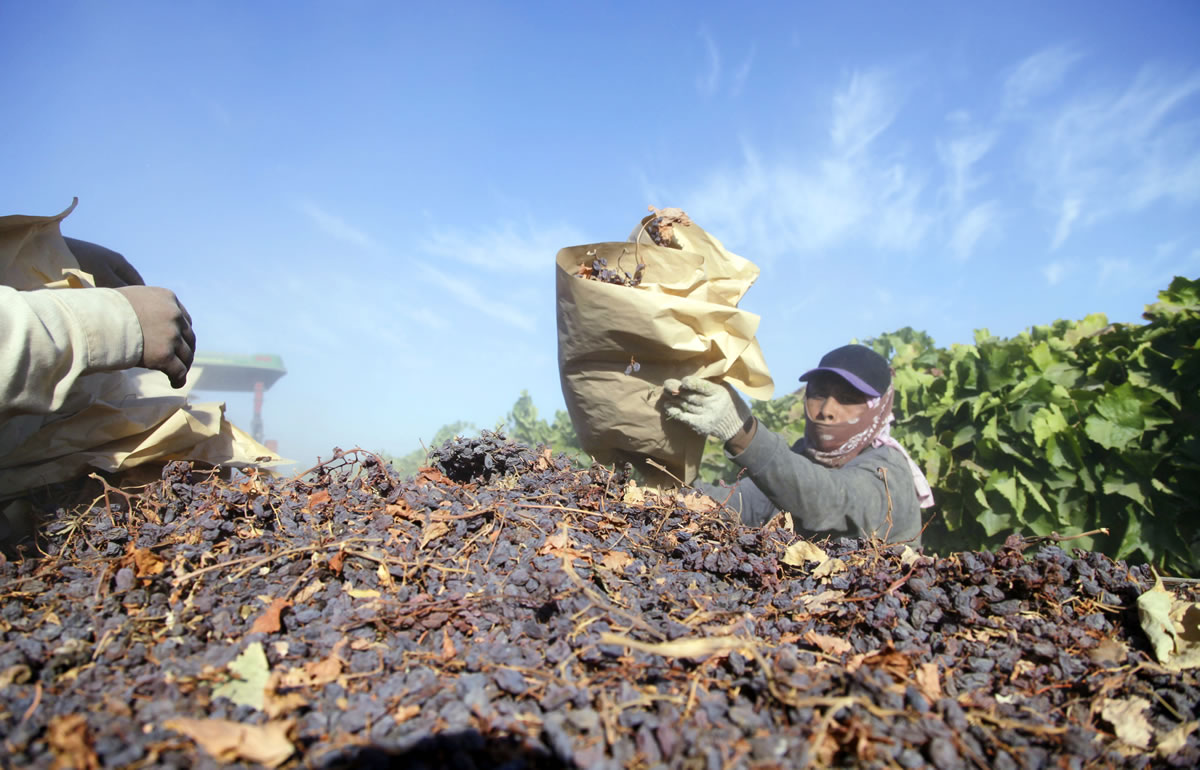FRESNO, Calif. — With the harvest in full swing on the West Coast, farmers in California and other states say they can’t find enough people to pick high value crops such as grapes, peppers, apples and pears.
In some cases, workers have walked off fields in the middle of harvest, lured by offers of better pay or easier work elsewhere.
The shortage and competition for workers means labor expenses have climbed, harvests are getting delayed and less fruit and vegetable products are being picked, prompting some growers to say their income is suffering. Experts say, however, the shortage is not expected to affect prices for consumers.
But farmworkers, whose incomes are some of the lowest in the nation, have benefited, with wages jumping in California to $2 to $3 over the $8 hourly minimum wage and even more for those working piece rate.
The shortage — driven by a struggling U.S. economy, more jobs in Mexico, and bigger hurdles to illegal border crossings — has led some farmers to offer unusual incentives: they’re buying meals for their workers, paying for transportation to and from fields, even giving bonuses to those who stay for the whole season.
And a few have stationed foremen near their crews to prevent other farmers from wooing away their workers.
“In the past, we were overrun with farmworkers. But not anymore,” said labor contractor Jesus Mateo, whose crews saw a 20 percent pay increase. “Employers have to do something to attract them. The fastest workers can now earn more than $1,000 per week.”
A California Farm Bureau Federation member survey being conducted this year thus far has found about half of farmers are experiencing shortages, said bureau manager Rayne Pegg. Many of the growers say their workforce has decreased by up to one-third.
In some cases, farmers are being paid below market prices, because their produce is past its prime, having stayed on the branch or vine for too long. Hardest hit are small farmers, who can’t afford to pay more for labor, Pegg said.
Farmers say immigration reform, which would legalize their current workforce and create a guest worker program to legally bring farmworkers from other countries, could solve the labor shortage problem. Immigration reform, however, has stalled in Congress.
Farmers in other states are also facing shortages. In Washington, apple growers are having a hard time finding enough workers in time for peak harvest in October. And in Oregon, pear growers — whose crop is very big this year — are facing the same problem.
“They are really struggling to get that crop off the trees,” said Barry Bushue, Oregon Farm Bureau president. “These growers have decades of investment into plant stock, they can’t just transition overnight to be less labor-intensive.”
For years, farmers throughout the U.S. had access to an abundant, cheap, mostly unauthorized labor force streaming in from Mexico. Workers say they often had to beg growers for even a few hours of work and their wages were low.
As the U.S. plunged into a recession and Mexico’s economy improved, some seasonal migrant workers chose to remain home.
Increased border security and drug cartel violence made crossings more dangerous and expensive, deterring workers. A sharp drop in Mexico’s fertility rate further decreased the number of young men crossing into the U.S. to work in the fields.
The trend appears long-lasting, spelling trouble for farmers, according to a new report by the nonpartisan Pew Hispanic Center. While the recession is over, the report finds, mass migration from Mexico has not resumed.
“This year, it has become even more challenging to find agricultural employees, and it’s going to get worse in the next few years,” said Noe Cisneros Jr. of Freedom AG, a Kern County labor contractor who manages a crew of up to 300 workers.



